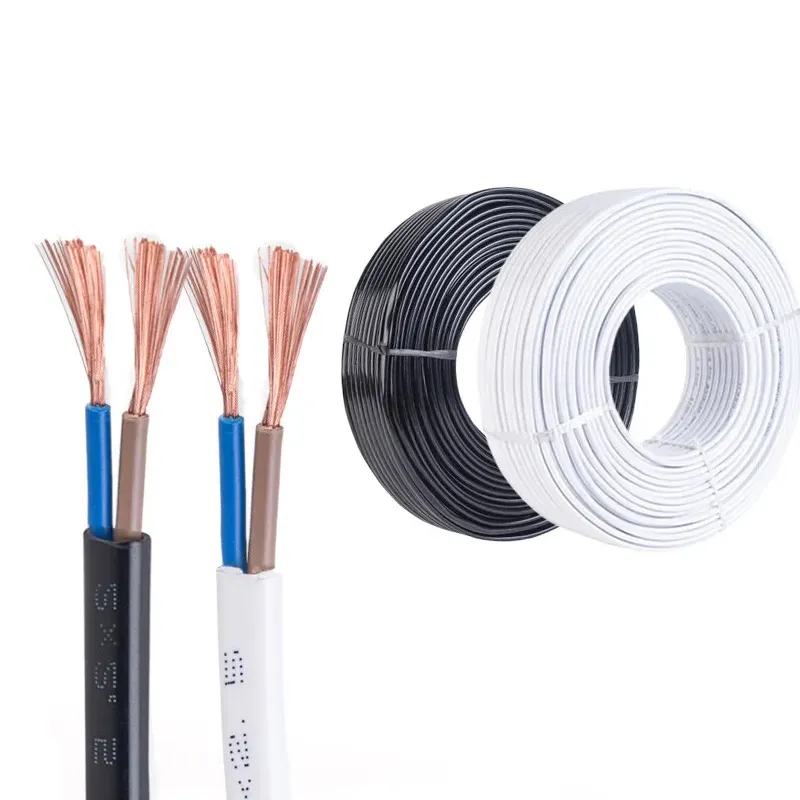
Comprehensive Range of Industrial Wire and Cable Solutions for Diverse Applications and Environments
The Importance of Industrial Wire and Cable Products in Modern Applications
In the contemporary industrial landscape, the role of wire and cable products cannot be overstated. These components are fundamental in a myriad of applications, extending across various sectors including manufacturing, telecommunications, construction, and energy. As technology advances and industries evolve, the demand for high-quality, reliable industrial wire and cable products continues to grow.
Understanding Industrial Wire and Cable Products
Industrial wire and cable products encompass a wide range of electrical conductors designed for various applications. These products are typically characterized by their insulation, gauge, and ability to withstand harsh environmental conditions. Common types of industrial cables include power cables, control cables, and instrumentation cables, each serving specific functions within an industrial setting.
Power cables are primarily used to transmit electricity from one point to another, providing essential connections for machinery and systems. Control cables facilitate communication and control signals between equipment, ensuring that operations run smoothly and efficiently. Instrumentation cables, on the other hand, are designed to connect instruments for monitoring and controlling processes, crucial in industries like petrochemicals, pharmaceuticals, and manufacturing.
Quality and Standards
The quality of wire and cable products is paramount. Industrial sectors often operate under strict safety regulations, necessitating compliance with international standards. Certification bodies such as the Underwriters Laboratories (UL), International Electrotechnical Commission (IEC), and National Electrical Manufacturers Association (NEMA) set guidelines that manufacturers must adhere to in order to ensure the reliability and safety of their products. Selecting cables that are compliant with these standards is critical for minimizing risks and enhancing operational efficiency.
Moreover, advances in materials and technology have led to the development of specialized cables that offer improved durability, flexibility, and thermal resistance. For instance, the introduction of cross-linked polyethylene (XLPE) insulation has significantly enhanced the performance of power cables in high-temperature environments. Such innovations are vital as industries increasingly seek to optimize their systems while minimizing downtime and maintenance costs.
industrial wire & cable products

The Role of Industrial Wire and Cable Products in Energy and Telecommunications
The energy sector is a major consumer of industrial wire and cable products. With the global push towards renewable energy, the demand for reliable and efficient transmission cables has surged. Cables used in wind turbines, solar power installations, and electric grid systems are engineered to endure extreme environmental conditions, thus playing a crucial role in the sustainability of energy infrastructure.
In telecommunications, cable products are essential for data transmission and connectivity. With the rapid expansion of broadband and mobile network technologies, high-performance cables are required to support the increasing volumes of data traffic. Fiber optic cables, for example, have revolutionized communication by providing faster data transmission speeds and greater bandwidth compared to traditional copper cables.
Future Trends
Looking ahead, the future of industrial wire and cable products appears promising. Innovations such as smart cables equipped with sensors for real-time monitoring and diagnostics are on the rise. These technologies enable proactive maintenance practices, reducing the risk of failures and enhancing system reliability.
Moreover, the increasing adoption of Industry 4.0 principles, which emphasize automation and interconnected systems, is likely to drive the development of advanced wire and cable solutions. Manufacturers are expected to invest heavily in research and development to produce cables that can meet the demands of increasingly complex industrial environments.
Conclusion
In summary, industrial wire and cable products are integral to the functioning of various industries, supporting essential applications in energy, telecommunications, and manufacturing. As technology advances and industries continue to evolve, the importance of selecting high-quality, compliant, and innovative cable solutions will only become more critical. Organizations that prioritize these components will be better positioned to enhance their operational efficiency and maintain a competitive edge in the market.
-
Reliable LIYCY Cable Solutions for Low and Medium Voltage ApplicationsNewsJul.14,2025
-
Premium Overhead Electrical Wire Solutions for Low and Medium Voltage ApplicationsNewsJul.14,2025
-
Innovative XLPE Electrical Cable Solutions for Modern Low and Medium Voltage NetworksNewsJul.14,2025
-
High-Quality Ethylene Propylene Rubber Cable – Durable EPDM Cable & 1.5 mm 3 Core OptionsNewsJul.14,2025
-
Exploring the Versatility of H1Z2Z2-K 1X4mm2 Cables in Modern ApplicationsNewsJul.14,2025
-
Uses of Construction WiresNewsJul.14,2025
-
Types of Neoprene CableNewsJul.14,2025














